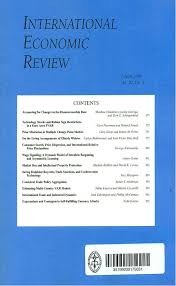
Cox, J., Offerman, T., Olson, M. and Schram, A. (2002). Competition For vs On the Rails: A Laboratory Experiment International Economic Review, 43:709--736.
-
Affiliated authors
-
Publication year2002
-
JournalInternational Economic Review
Several European countries and Japan are in various stages of privatizing and/or introducing more competition in passenger rail service. This process has been furthered by a directive from the Commission of the European Communities (1991) requiring member states to separate operations from infrastructure on the books and give international groupings of trains access to their infrastructure. In the Netherlands, the Ministry of Transport, Public Works, and Water Management was assigned responsibility for making a recommendation to Parliament for choosing between competition for the rails and competition on the rails in increasing competition in the supply of passenger rail service. The Ministry commissioned the experiments reported here in order to acquire better understanding of the properties of the two alternative types of competition in the context of a simple stylized rail network. The experimental rail network includes station complementarity and time slot substitutability. It also includes tradeoffs between local and express trains. Competition on the rails involves allocation of rights to use station and time slot routes by price bids in a combinatorial auction. Competition for the rails involves allocation of rights to regional monopolies by fare-structure bids for supplying a pre-specified minimum transport schedule. The experiments include both allocation of rights and scheduling of trains on the network. The two forms of competition are evaluated with various criteria developed by the Ministry, including market prices and allocative efficiency.